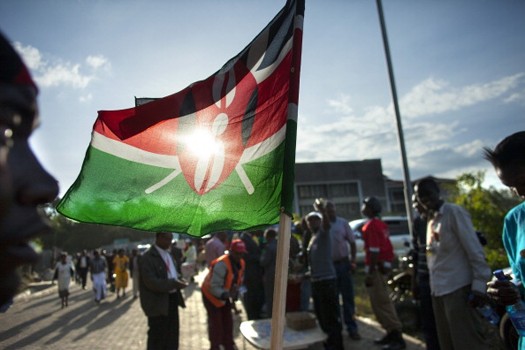NEW YORK, May 24, 2013 — The International Center for Transitional Justice (ICTJ) welcomes the release of the Truth, Justice and Reconciliation Commission (TJRC) Report, which is the result of an official truth-seeking process undertaken by Kenya following the 2007/2008 post-election violence. The report shares the TJRC’s findings on gross violations of human rights, economic crimes, illegal acquisition of public land, marginalization of communities, and ethnic violence between 1963 and 2008.
“The TJRC report is a significant moment in Kenya’s attempts to address serious human rights violations,” said ICTJ President David Tolbert. “While the process has been far from perfect, there are a number of valuable aspects in the report that should serve as a point to refocus energies for genuine accountability efforts. In particular, the commission has made findings of responsibility against a large number of persons, some of whom are senior in the Kenyan government. These allegations must be credibly and expeditiously investigated by the appropriate authorities.”
The truth commission experienced a myriad of internal problems and challenges throughout its operations, including serious allegations of conflict of interest with respect to its chair, Amb. Bethuel Kiplagat. The commission was also considerably delayed in completing and publishing its final report. The commission’s failure to publish its findings before the General Election on March 4, 2013, undermined one of the main rationales of the commission and denied the people of Kenya information to which they were entitled as they went to the polls.
“A number of criticisms and controversies about parts of the report have already circulated in the press, including on a critical chapter on land issues,” said Njonjo Mue, head of ICTJ’s office in Nairobi. “All such issues should be properly scrutinized and quickly resolved.”
Among its many recommendations, the TJRC calls on the Kenyan government to provide reparations to victims of historical injustices. This will require meeting victims’ demands for justice and accountability in respect of the violations committed against them. Civil society will have an important role to play in monitoring the implementation of recommendations aimed at addressing impunity and past historical injustices.
“The commission’s report must be carefully analyzed. Despite significant concerns, it is an opportunity for the institutions of the state to respond meaningfully, accept their responsibilities to the victims of human rights violations and historical injustices, and ensure that Kenya becomes a place where all citizens enjoy the basic rights and freedoms guaranteed by the Constitution,” said Mue.
About ICTJ
The International Center for Transitional Justice works to redress and prevent the most severe violations of human rights by confronting legacies of mass abuse. ICTJ seeks holistic solutions to promote accountability and create just and peaceful societies. For more information, visit www.ictj.org
Contacts
New York: Refik Hodzic, Director of Communications E-mail: rhodzic@ictj.org Phone: +1 917 975 2286
Nairobi: Njonjo Mue, Head of Kenya Office E-mail: nmue@ictj.org Phone: +254 20 3877508
Photo: A supporter of Kenyan presidential candidate Uhuru Kenyatta sells Kenyan flags at the Catholic University where Uhuru Kenyatta gave the acceptance speech of his victory in Kenya's national elections on March 9, 2013 in Nairobi. Georgina Goodwin/AFP/Getty Images
